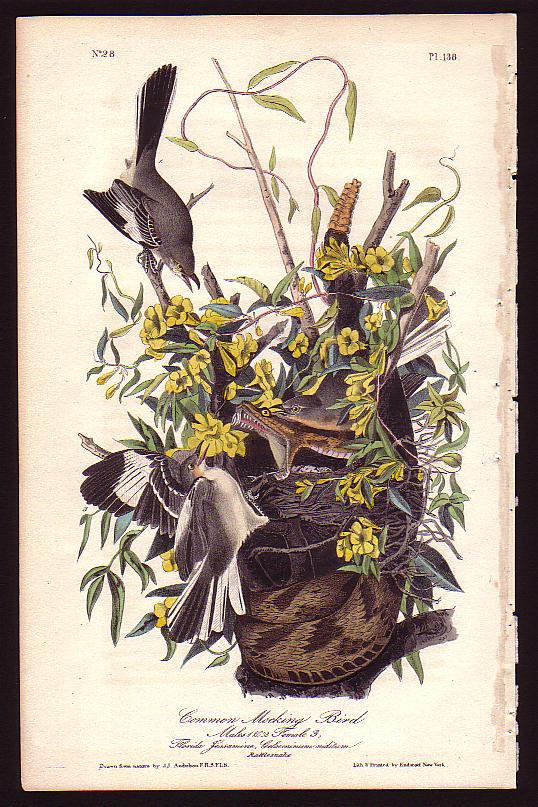Document
Metadata
Description
Plate 138. Royal Octavo, first edition.
“[Y]ou should listen to the love-song of the Mocking-bird, as I at this moment do. See how he flies round his mate, with motions as light as those of the butterfly! His tail is widely expanded, he mounts in the air to a small distance, describes a circle, and, again alighting, approaches his beloved one, his eyes gleaming with delight, for she has already promised to be his and his only. His beautiful wings are gently raised, he bows to his love, and again bouncing upwards, opens his bill, and pours forth his melody, full of exultation at the conquest which he has made.
They are not the soft sounds of the flute or of the hautboy that I hear, but the sweeter notes of Nature’s own music. The mellowness of the song, the varied modulations and gradations, the extent of its compass, the great brilliancy of execution, are unrivalled. There is probably no bird in the world that possesses all the musical qualifications of this king of song, who has derived all from Nature’s self. Yes, reader, all!”
“No sooner has he again alighted, and the conjugal contract has been sealed, than, as if his breast was about to be rent with delight, he again pours forth his notes with more softness and richness than before. He now soars higher, glancing around with a vigilant eye, to assure himself that none has witnessed his bliss. When these love-scenes, visible only to the ardent lover of nature, are over, he dances through the air, full of animation and delight, and, as if to convince his lovely mate that to enrich her hopes he has much more love in store, he that moment begins anew, and imitates all the notes which nature has imparted to the other songsters of the grove.” (Audubon).
Title
56. Common Mocking Bird















